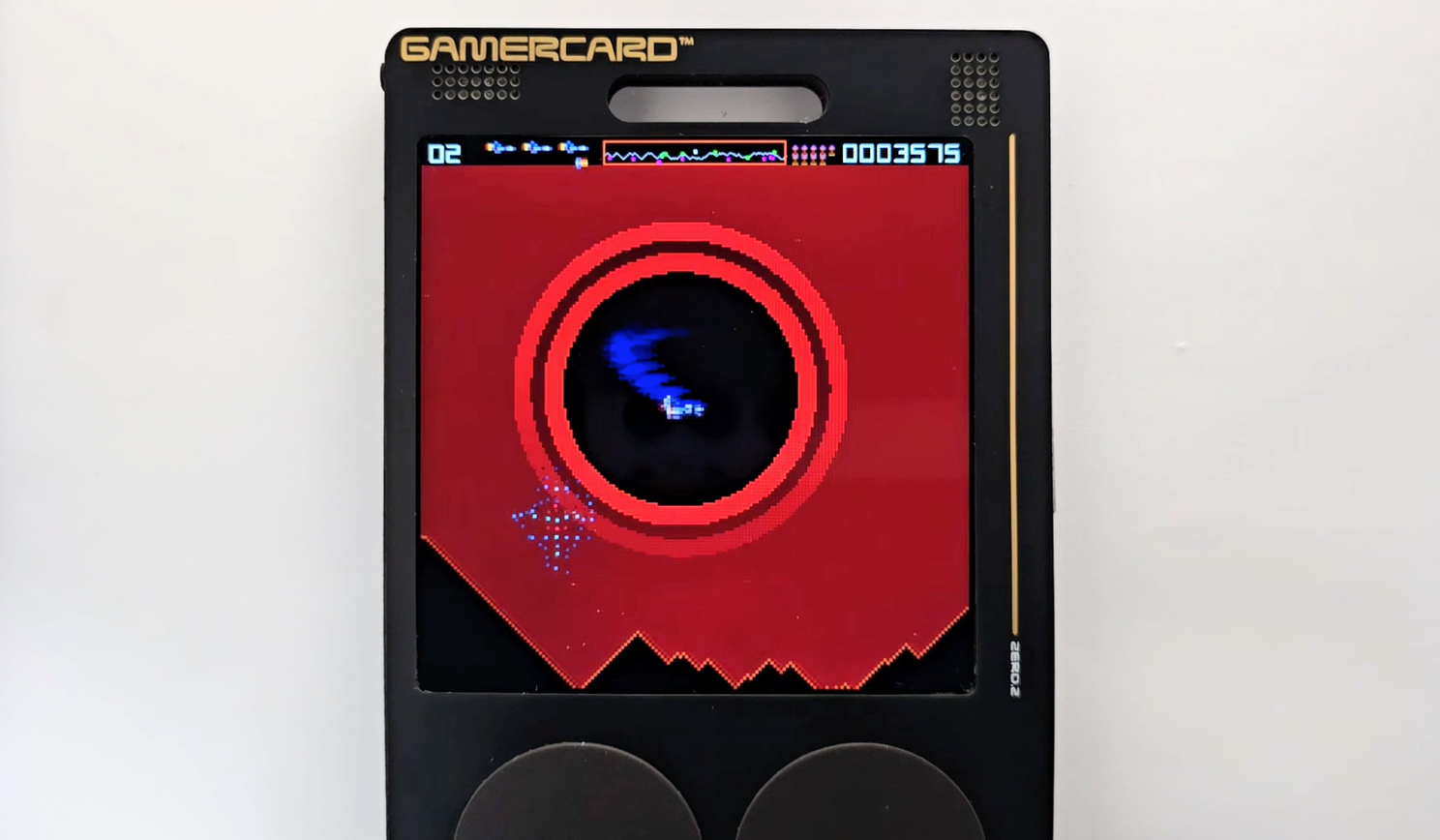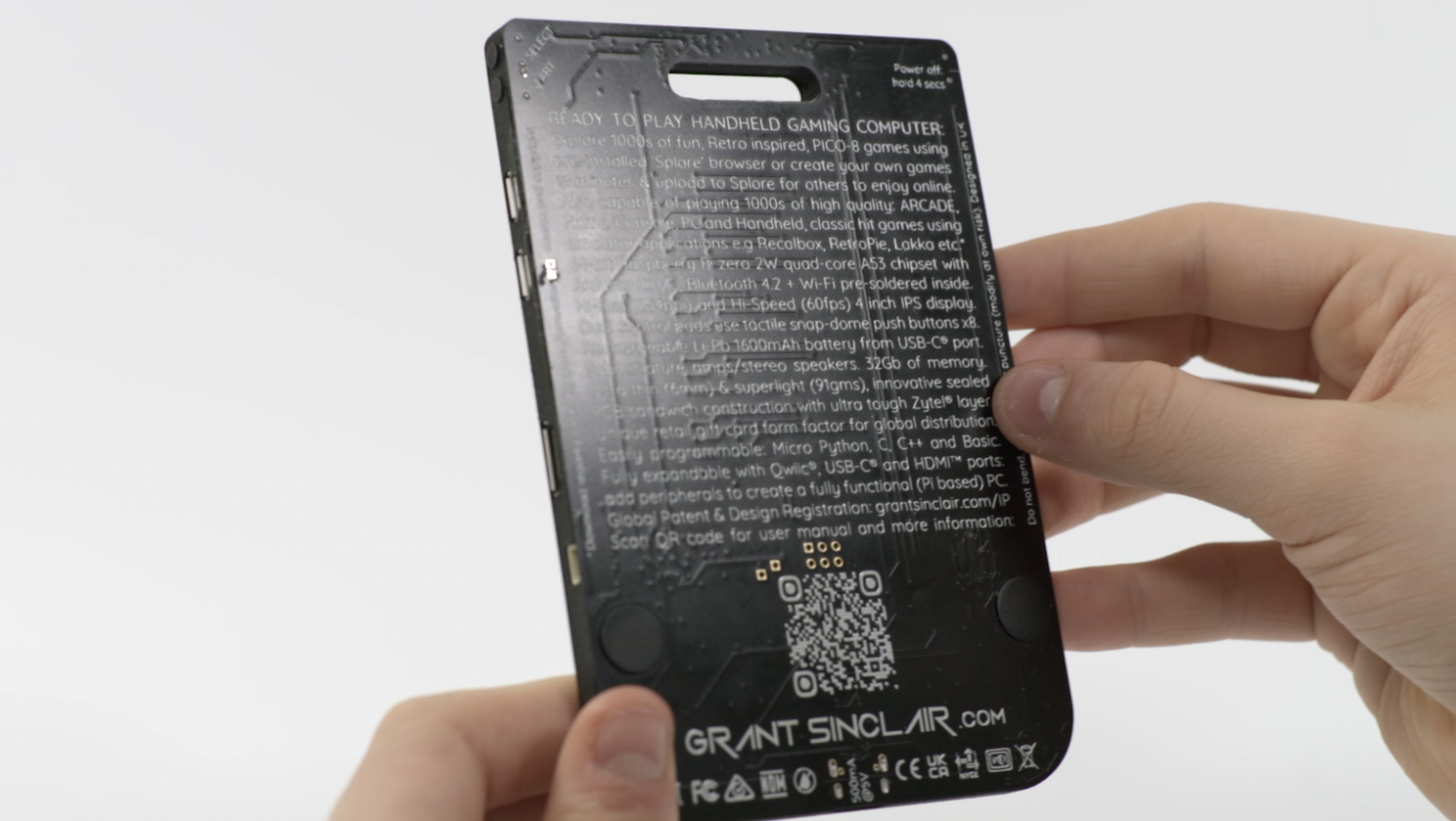Retro gaming’s resurgence in recent years has led to some of the coolest devices that have made the genre accessible to many. From physical handhelds to software emulators, games from the past feel more in tune with the present than ever before. The latest in the series of these exciting releases is an ultra-portable handheld made by Grant Sinclair, one that just happens to be the exact size of a retail gift card!
Watch On
For those unaware, Grant Sinclair is the nephew of Sir Clive Sinclair—inventor of the iconic British computer, ZX Spectrum—that democratized computing and transformed a whole generation into gamers, coders, engineers and more. The irony of a pioneer’s nephew still clinging to his uncle’s past might be too on the nose, so let’s just stick to the product at hand.
GamerCard®, as it’s called, is a retro gaming handheld powered by a Raspberry Pi and features a beautiful 4″ IPS screen with a pixel density of 254 PPI. This display is accompanied by two circular pads below (containing eight tactile snap-dome buttons) that act as the controls for the device. It also comes preinstalled with various high-energy arcade games out of the box to offer a truly “grab-and-go” experience.
The console comes with a custom home launcher featuring big and clear icons for not only games, but also emulators like Recalbox, RetroPie and Lakka. Speaking of which, GamerCard can easily play all PICO-8 titles while also supporting coding development in MicroPython, C, C++, BASIC, and more.
To make the deal even more enticing, two indie games—Bloo Kid 2 and AstroBlaze DX—that were previously exclusive to the Nintendo Switch have been ported over to the GamerCard with proper optimizations for the square aspect ratio of its display. Bloo Kid 2 is an action-platformer while AstroBlaze DX is a space shooter, respectively, and both of them are adorned in the pixel-art style that’s perfect for a device like this.

The GamerCard is incredibly thin at only 6.5 mm and weighs 100 grams. It’s more pocketable than most handhelds and the promotional materials show it hanging on cash counters, like it’s an actual gift card. The radical dimensions of the device are a result of using stacked PCBs and ditching any traditional housing or case. You hold exactly what you play.
Putting the games aside, the GamerCard is also a fully-fledged PC because it’s based on a Raspberry Pi Zero 2W with a quad-core ARM Cortex-A53 processor. It has 128GB of internal storage alongside a 1600mAh battery. Under the hood, there’s a built-in Qwiic connector which allows the device to interface with sensors, LCDs, relays and more without needing to crack it open.
All this is paired with a USB-C and HDMI port on the side that will further the GamerCard toward PC territory, enabling you to connect a keyboard and mouse to transform it into a normal desktop computer. However, it would be one expensive ass Raspberry Pi at that.

The GamerCard costs £125 which comes out to roughly $170 freedom bucks. To put that into perspective, the Retroid Pocket 4 Pro is on sale for $149 right now, or you could get any one of the seemingly unending Anbernic devices that are more performant while staying under $100. If you fancy something more unique, then clamshell or flip handhelds are also starting to make the rounds, like the Miyoo Flip or the RG34XXSP, both of which are one-third the price of the GamerCard.
It may sound like I’m trying to ruin Sinclair’s parade but you’ve to ask, “at what point does ingenuity exceed practicality?” The device is almost comically expensive for what it offers and that includes the sheer novelty of its physicality. Unless you absolutely love retro gaming, or gift cards for some reason, GamerCard isn’t exactly good value. You’d need a special set of rose-tinted glasses to conform to this nostalgia, but we won’t deny the creativity on display here.
